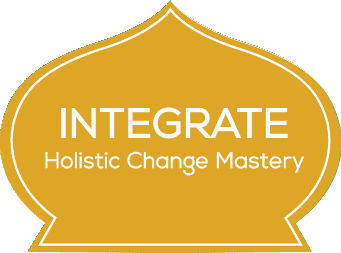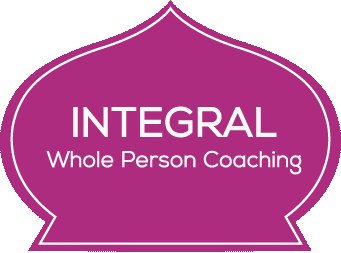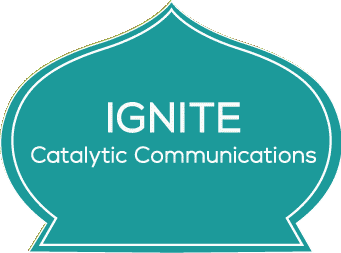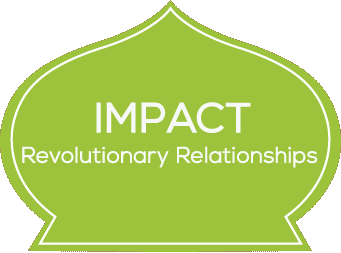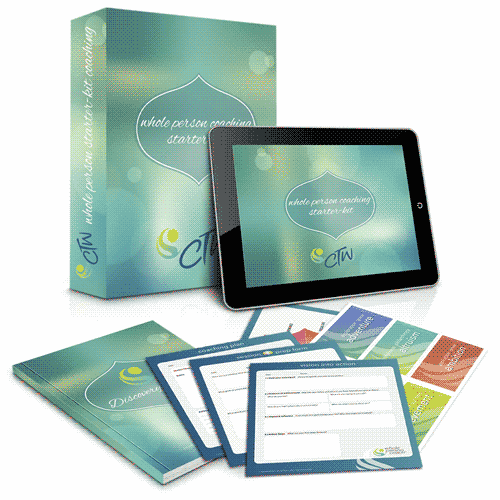Trauma-Informed Coach
Certification
Become a Certified Trauma-Informed Coach
Prepare yourself to cultivate positive, sustainable change helping people thrive amid complexity, chaos, and uncertainty.
In a world that continues to grow in uncertainty, conflict and chaos, people are turning to coaches for the next level of support, often unaware that trauma and chronic stress are at the root of their challenges.
Being Trauma Informed is no longer optional—it’s an indispensable skill set for coaches who truly want to make a difference.
Many coaches are drawn to Trauma Informed coaching because they yearn to effect genuine change while staying within their professional boundaries. The fear of making mistakes weighs heavily on their minds, and they seek guidance to responsibly and responsively assist their clients.
With this certification, you’ll acquire the skills and expertise to confidently navigate the complexities of trauma and chronic stress while boosting your marketability and capacity to truly work with the whole person.
Note this course is not a replacement for an ICF Level 1 or Level 2 program. If you are looking to earn an ICF credential you may want to view our ASSOCIATE or PROFESSIONAL program and add the Trauma Informed Coach Certification to further specialize.
Available Self-Study or Live Online
Next Live Program:
JUNE 25th – August 6th
(No class July 23rd)
Tuesdays 8a-10a (Pacific) + Practicum*
Program meets for 6 consecutive weeks unless otherwise specified.
23 ICF Continuing Coach Education Credits Available (18 Core Competencies/5 Resource)
Are you ready to…
- Be at the forefront of meeting this critical need?
- Feel equipped with invaluable insights, tools and techniques, to best guide your clients through a transformative process, liberating them from their past and empowering them to thrive in a life of their own design?
- Have the ability to navigate the complexities of trauma and chronic stress distinguishes a skilled coach from a transformative one?
- Expand your coaching capacity, peering beneath the surface to help clients break free from the underlying barriers that hinder their progress.
- Ensure your success and the success of your clients by using the right tools, techniques and safety measures?
Want updates for upcoming classes and ongoing trauma-informed related resources?
Sign-up for our monthly e-newsletter.
As a Certified Trauma-Informed Coach you champion your clients to move forward and step into their best life regardless of what else may be happening around them.
Help your clients self-create the safety, connection, and respect they need. Then witness them as they shift into their most resilient, authentic, and thriving selves, letting go of past influences to step into what is truly possible for them.
Understand and support others through the wisdom of Relational Neuroscience and psychology. Offer supportive tools and techniques your clients can clearly understand and self-employ. Also learn to advocate for the right kind of support and referrals your clients need.
Here’s what you’ll learn:
Module 1: Trauma, Chronic Stress & You: Empowering Transformation
- Explore Trauma’s Multifaceted Nature: Understand various types of trauma, their origins, manifestations, and lasting effects to better support clients.
- Understand the Role of a Trauma-Informed Coach: Compare therapist and coach roles, harness the synergy between coaching and therapy to provide comprehensive support.
- Embrace the 5R Model: Use this framework to recognize and address trauma’s impacts within coaching boundaries.
- Empower Decision-Making: Develop skills to navigate sensitive areas, offer informed guidance, and direct clients to appropriate resources.
![]()
Module 2: Coach as the Instrument of Change
- Explore the concept of “Somatization” and its role in helping clients ground and center themselves in their bodies.
- Gain awareness of the six different ways we or others may respond when interacting with individuals who have experienced trauma or are presenting in a way that triggers an internal response.
- Learn effective strategies to establish NeuroSafety well in advance of working with your clients, creating an environment that fosters trust and safety.
![]()
Module 3: Responding: NeuroSafe Communication & Psychoeducation
- Discover the fundamentals of NeuroSafe Communication, understanding how to navigate language and expression to establish trust and promote healing.
- Embark on an exploration of Co-regulation, an invaluable practice for supporting others and cultivating your own well-being. Discover the transformative power of connection and attunement.
- Engage in practical exercises utilizing WOT (Window of Tolerance) tools to educate and empower your clients.
- Expand your toolkit by introducing clients to the Hand Model of the Brain, a visual representation that aids in understanding their responses to trauma and stress.
![]()
Module 4: Regulating Nervous System States
- Gain an understanding of the Fear/Stress Response from a Neurobiology lens.
- Explore the concept of Amygdala hijacking and its impact on emotional regulation.
- Develop a comprehension of embodied sensory fragments and their significance in trauma.
- Learn about different types of traumatic memories and their effects on individuals.
- Examine how trauma can influence memory recall.
- Expand your toolkit by incorporating various self-regulation tools, including effective self-soothing techniques.
![]()
Module 5: Polyvagal Theory & Ventral Vagal Tools
- Gain insights into the fundamentals of the Nervous System, particularly the Autonomic Nervous System and Vagus nerve.
- Explore Stephen Porges’s PolyVagal Theory.
- Incorporate “Bottom-Up” tools to assist clients dealing with hyperarousal and hypoarousal states
- Embarking on a dynamic learning journey, students not only bring their own real-life case scenarios but also immerse themselves in a rich tapestry of captivating case studies carefully curated within the program.
![]()
Module 6: Relational Trauma & Whole Body Resilience
- Explore indicators of the Fawn/Fein response and other adaptations from relational trauma.
- Emphasize the importance of a coaching relationship that promotes self-reliance and self-trust through choice and safety.
- Learn language to help clients feel comfortable exploring their wholeness from an embodied perspective.
- Deepen understanding of interoception and exteroception using simple awareness tools.
- Utilize the Total Well-Being framework as a guide for a conversation on a well-balanced approach to well-being.
- Allow time for open Q&A and address any final exam-related questions.
After completing this course, you will be able to:
- Understand the different forms of trauma and its effect on the whole person.
- Easily recognize indicators for trauma present within clients and responsibly offer support while working with the whole person.
- Invite clients to discover and develop techniques to self-regulate and reclaim their sense of self.
- Help your clients understand the self-recovery process and engage them to develop their own resiliency practice.
- Motivate clients to self-master their unique circumstances so they can move into the life they truly are meant to live and gently let go of the past.
- Leverage a wide variety of tools and techniques to support your clients in the moment and long-after their work with you.
- Confidently work with whatever arises during your coaching sessions to be there for the client and retain a professional boundary.
Our Trauma-Informed Coach Training program will give you a deep understanding of all the different types of trauma and teach you how to offer support and help your clients reclaim their sense of self.
Navigating the tender complexities of trauma can be incredibly difficult for many coaches.
When your only desire is to help your clients step into their best lives, having the right tools and support methods is essential.
Your Investment:
$597
Enrollment Limited.
- 6-session weekly course delivered via Zoom for convenient remote learning.
- 12-hour practicum designed to enhance and solidify your learning experience. Please note that the practicum is required for participants to receive the 23 ICF CCEs and their TICC certificate.
- All sessions recorded and accessible for students to revisit the content at any time, ensuring lifetime access to valuable resources.
- Supplementary reading materials, video content, coaching tools and handouts for clients.
- Optional reading list provided to enrich and deepen your learning journey.
Why is it important to be an trauma-informed coach?

I enjoyed the breakouts and watching Feroshia coach in these sensitive areas.
I appreciated the quality of the information and the way the course was facilitated.
I’m able to use the information personally and to enhance my coaching practice.
Coach Training World is unconventional in how relaxed you can be in this space. You can reach out and ask for exactly what you need. Expect to be offered ideas and options you’d never considered. I’ve already incorporated this new perspective along with the tools and resources into my coaching groups and courses!
I loved the interactivity of this program and the charts/tools.
Being able to work with peers and try out what we learned along with the the chance to watch Feroshia coach was very helpful.
This course was fun and empowering!
Frequently Asked Questions
Who is this program for?
Our Trauma Informed Certified Coach training is designed to be inclusive and welcomes individuals working with clients, patients, or anyone else interested in incorporating a trauma lens into their approach. It is important to note that this program does not serve as a substitute for a formal ICF Level 1 or Level 2 program, as its primary focus lies in the realm of trauma-informed coaching rather than core coaching skills. We assume that participants already possess some level of training in coaching and/or a related field.
Our diverse cohort of past participants includes coaches from various niches, therapists seeking a coach-like approach to trauma work, educators, yogis, physical therapists, and other professionals who share a passion for incorporating trauma-informed practices into their work.
Is this program for me? (What to expect)
Our Trauma-Informed Coach Certification encompasses working with the whole person and will introduce somatic coaching techniques and other tools that may be unfamiliar to you.
We request that you approach this training with an open mind. Working with the whole person in a trauma-informed manner may expose you to new ideas and experiences.
It’s important to acknowledge that as we delve into the topic of trauma, your own past experiences may come to the surface. Often, we may not recognize the ways in which these experiences have impacted or imprinted upon us.
Remember, you always have the choice of whether and how you participate. We strive to provide a safe, respectful, and highly supportive learning community in which you are welcomed as you are, valued for your unique experiences, and supported in your growth and understanding of trauma-informed coaching. Our aim is to provide you with a toolkit that will benefit you and your clients toward feeling resourced, being resilient and always at choice.
What is the difference between your Whole Person Certified Coach (WPCC) training and the trauma informed coach certification?
Our Trauma-Informed Coach Certification develops and enhances your capacity to be effective at supporting clients who’ve been impacted by trauma or chronic stress.
If you are looking to become a professionally trained holistic coach and/or pursue your ICF certification then we’d recommend our longer and more robust coach training programs. (CORE, SIGNATURE, ICF ASSOCIATE and/or ICF PROFESSIONAL) certifications. These courses educate and empower you to work with the whole person in a niche of your choice.
Whole Person Coaching vs. Trauma Informed Coaching?
Whole Person Coaching and Trauma-Informed Coaching are both approaches to coaching, but they have distinct focuses and methodologies:
Whole Person Coaching takes a holistic approach, considering all aspects of an individual’s life, including career, relationships, health, spirituality, and personal fulfillment. It aims to create a sense of balance and fulfillment across different dimensions This approach engages with the entirety of an individual’s being in any aspect of their life. It considers doing, thinking, feeling, being, and somatic sensing. The goal is to foster positive and transformative change by working with the whole of who someone is on the inside and out. It draws from a multi-modality approach, including elements of cognitive and relational neuroscience, positive psychology, narrative coaching, somatic psychology, and Jungian psychology. Whole Person Coaching is applicable to a wide range of coaching scenarios and is not limited to specific contexts or populations.
Trauma-Informed Coaching focuses specifically on understanding and addressing trauma and its effects on individuals. It recognizes the prevalence of trauma and the potential impact it can have on a person’s well-being and behavior.This approach is sensitive to the potential presence of trauma and emphasizes safety, trustworthiness, choice, collaboration, and empowerment in the coaching relationship. The primary goal is to support individuals in self-directed healing and transformation from trauma, building resilience, and reclaiming agency over their lives. It involves techniques and strategies that are trauma-sensitive, such as creating a safe and supportive environment, using grounding techniques, and avoiding re-traumatization. Trauma-Informed Coaching is particularly relevant for individuals who have experienced trauma or adverse life events. It can be applied in various contexts, including therapy, counseling, or coaching settings.
While Whole Person Coaching takes a comprehensive approach, considering all aspects of an individual’s life for overall well-being, Trauma-Informed Coaching specifically addresses the presence of trauma and focuses on creating a safe and empowering environment for individuals who have experienced trauma.
Both approaches are valuable and can be applied in different contexts depending on the needs and experiences of the coachee.
Do I need to be a coach to attend?
No, you don’t have to be a coach to attend this program. This training is for anyone seeking the knowledge and skills to effectively respond to clients who may suffer from chronic stress to traumatic experiences. Our goal isn’t to “TREAT” trauma but to equip ourselves to “RESPOND” responsibly to the signs and symptoms of an activated nervous system.
What is the "Practicum?"
To earn all 23 ICF CCEs (Continuing Coach Education) and your TICC (Trauma Informed Certified Coach) Certification, participation in the practicum is required.
The practicum component involves dedicating an additional 12 hours of time outside of the weekly classes.
During this period, you will have the opportunity to partner with peers, clients, or colleagues to practice the tools and engage in guided discussions related to the program.
It also entails maintaining a self-reflection journal to deepen your personal insights and growth.
The practicum culminates in a final Case Study Exam, which allows you to demonstrate your proficiency and application of the learned concepts.
However, if you are not interested in pursuing the TICC certification, you can still attend the live program and earn 12 ICF Continuing Education Credits. This option allows you to gain valuable knowledge and skills for your personal and professional applications without the practicum requirements.
Please note that all program requirements, including the practicum, must be completed within 90 days from the program start to be considered fulfilled.
Can I do this program via self-study?
Although this program was initially designed as a live online program conducted via Zoom, we understand that it may not be possible for you to attend due to time zone constraints. That’s why we have made the program available for self-study.
The self-study option includes:
- Watching the recorded videos
- Completing journaling assignments outside of class
- Participating in peer-discussion topics
- Practicing the tools and techniques with your own clients, peers, or others.
Additionally, there will be a final written case study exam where you will respond to six different case scenarios. This exam will test your application of what you’ve learned in class, ensuring that you can authentically approach serving clients while also maintaining professional responsibility.
How much time should I expect to invest?
Our Trauma Informed Certified Coach program is designed to accommodate your schedule. The program consists of weekly sessions that span a duration of 6 weeks, providing a structured and comprehensive learning experience.
In addition to the weekly sessions, if you choose to participate in the Practicum portion of the program, we recommend setting aside approximately 12 additional hours to collaborate and work with your peers. This dedicated time allows for valuable hands-on application of the concepts and skills learned during the program, enhancing your practical understanding of trauma-informed coaching.
We understand the importance of balancing commitments and strive to create a program that is both enriching and manageable within your existing schedule.
Will you list me in your Find-a-Coach Directory?
Yes, after you’ve completed the full program including a written case-study exam, we’d be delighted to list you on our website as a resource for clients seeking a Trauma-Informed Coach in your niche of choosing. Please note you’ll also get a digital badge along with your certificate.
Can I get a refund?
Our Trauma-Informed Coach Training program has a very limited number of seats. Due to the size restrictions we do not offer a refund. We do offer the opportunity to move once to another training and/or the option to participate via self-study as long as you’ve attended the first day of class.
Can I use the ICF CCE's to renew and/or upgrade my ICF credential?
Yes, continuing coach education can be used for renewal of a current credential then also used for the initial application for an upgrade of the credential! So they can submit the training now for their PCC renewal and then also re-submit that same education for their MCC Application! They cannot submit the same coach education for 2 different renewal periods.

Coach Training World Founder Feroshia Knight, MA, MCC



